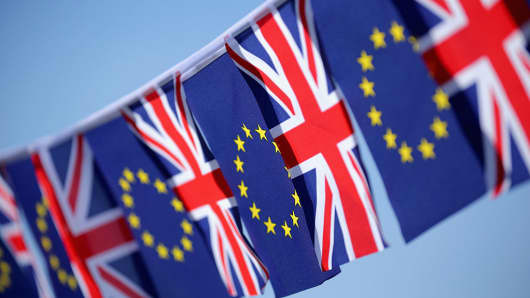There's a scene in "Monty Python" where Reg, a first-century Israeli activist (John Cleese), plots to overthrow the Roman empire. "We've given them everything; what have they given us in return?" In an embarrassing moment of honesty, one of Reg's companions mentions "the aqueduct." Another one brings up "sanitation." The list goes on and on. Eventually, Reg sums it all up in one memorable outburst: "All right... all right... but apart from better sanitation and medicine and education and irrigation and public health and roads and a freshwater system and baths and public order... what have the Romans done for us?" Timidly, one of Reg's companions suggests: "Brought peace!"
Reg snaps back: "What!? Oh... Peace, yes... shut up!"
I can't help going back to Cleese's old skit as I read commentary on "Brexit" and the European Union. The consensus seems to be that the European experiment has failed. I beg to disagree; and would argue that, on the whole, the European Union will go down in history as one of the continent's greatest moments.
Take free trade. My main mission as an economics professor is to remind students that most value in the economy is created not by making things but rather by trading them. I have an apple but I like bananas, whereas you have a banana but you like apples. By trading an apple for a banana both of us become better off, even though, from a physical point of view, our combined assets remain the same. We take free-trade Europe for granted, but it wasn't always like that.
Next, let's talk about the movement of people. Britons on the "leave" camp complain that many non-British Europeans have moved to London; but they conveniently forget that many British citizens live abroad in other EU countries. There are many more Irish in the U.K. than Britons in Ireland; but there are also many more Britons in Spain than Spaniards in the U.K. Freedom of movement is a two-way street; and, like free trade, freedom of movement leads to an overall win-win outcome. Suppose that Florida and New York were to put a stop to the movement of "citizens" across states: no more New Yorkers in Florida and no more Floridians in New York. Would the U.S. be better off?
Finally on my short list of EU goodies: peace. Yes, peace. Harvard Professor Niall Ferguson stated that "European integration has had absolutely nothing to do with peace in Europe since World War II; that has been the achievement of NATO." With due respect for the distinguished Harvard historian, I note that peace is more than military arsenals and treaties. For example, the EU student-exchange program (Erasmus) has contributed to a new generation of Europeans that is incredibly more European than its predecessors, and so much less prone to the violent conflict that has plagued the old continent for centuries.
Make no mistake: The EU is far from perfect. Its system of governance is too bureaucratic and unaccountable. The monetary union was planned too hastily and is full of holes. The past 10 years have been particularly difficult, with their combination of unemployment, public and private debt, terrorism and migration flows. But connecting all evils to the EU is inaccurate and unfair; and makes us run the risk of throwing the baby out with the bathwater. Overall, the European Experiment has been a success story.
P.S. - John Cleese has declared he is voting for Britain to leave the EU. But then again, he also suggested that hanging European Commission President Jean-Claude Juncker would be the best way of reforming the bloc. Once a comedian, always a comedian.


